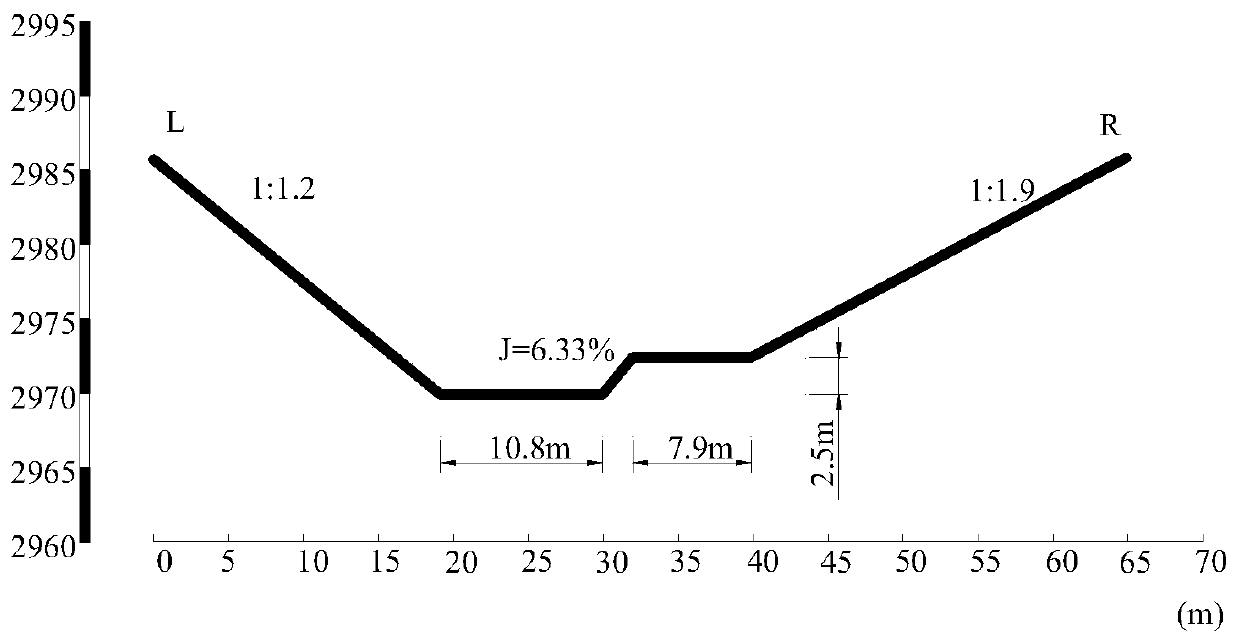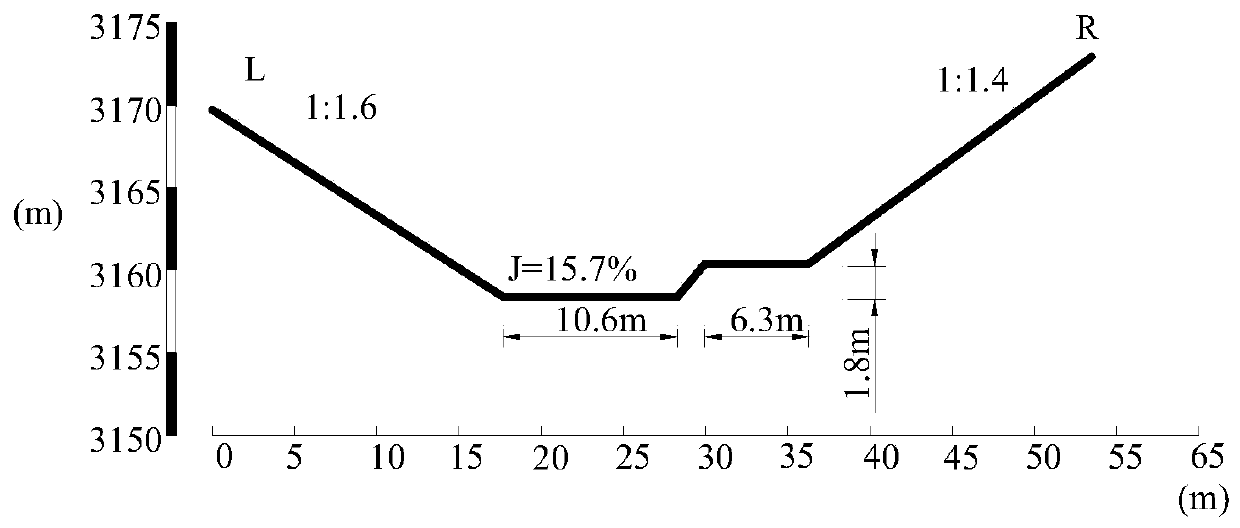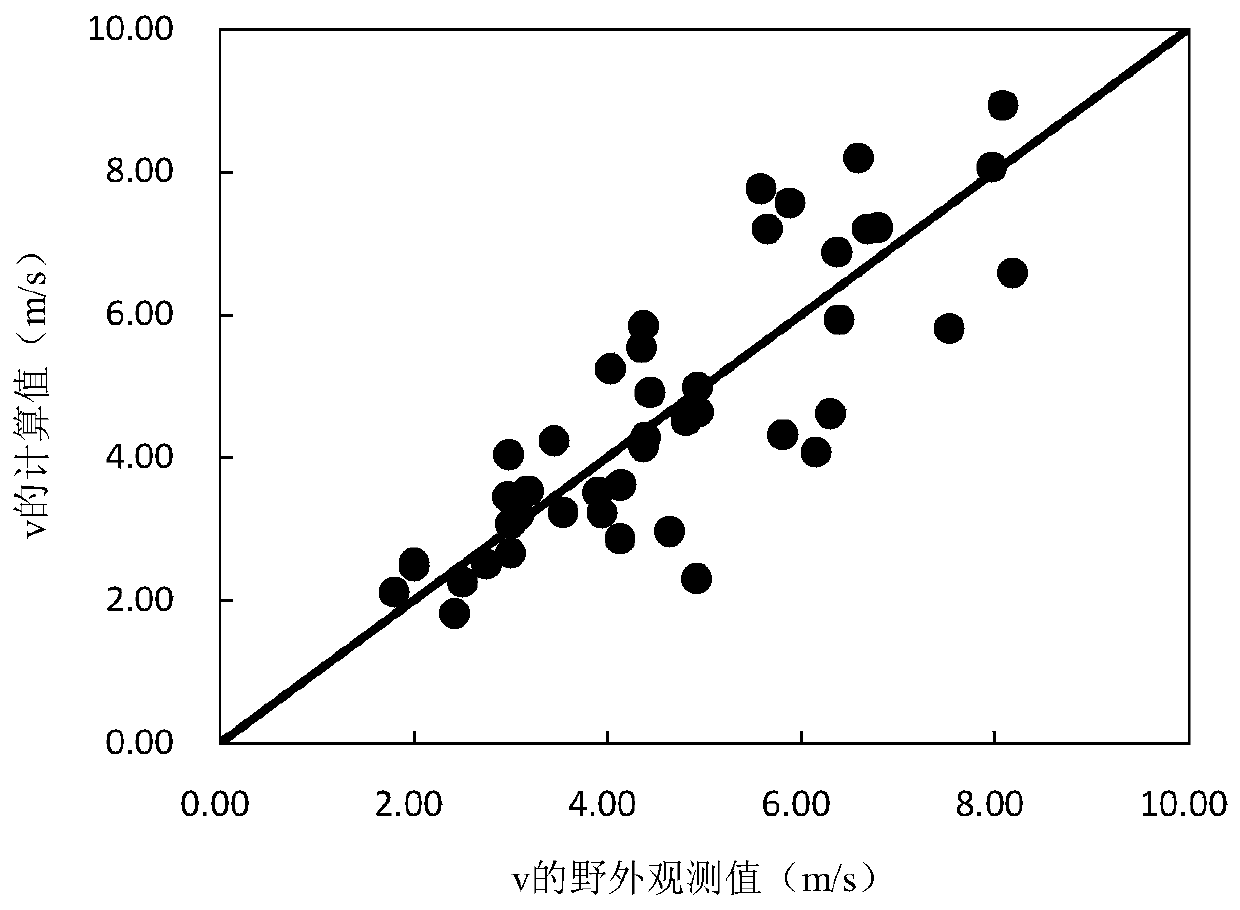Calculation Method of Average Flow Velocity in Section of Viscous Debris Flow
A technology of average flow velocity and debris flow, applied in fluid velocity measurement, velocity/acceleration/impact measurement, measurement device, etc., can solve the problems of difficulty in comprehensive roughness coefficient of debris flow, affecting the accuracy of measurement and not considering the influence of flow velocity, etc. The effect of high engineering practical value, refined physical meaning and simple calculation
- Summary
- Abstract
- Description
- Claims
- Application Information
AI Technical Summary
Problems solved by technology
Method used
Image
Examples
Embodiment 1
[0026] Such as figure 1 Shown, measure and calculate the primary debris flow velocity of a debris flow tributary ditch of Xiaojiang, a tributary of the upper reaches of the Jinsha River, with the method of the present invention.
[0027] A debris flow ditch is a debris flow tributary of Xiaojiang, a tributary of the upper reaches of the Jinsha River, with a drainage area of 48km 2 , the main ditch is 14km long, the highest point of the basin is 3230m above sea level, and the lowest point is 1040m above sea level. Both sides of the ditch bank are dominated by phyllite and slate, and strong weathering has resulted in a large number of loose deposits such as shallow landslides and collapses in this area, providing a large number of sources for the formation of debris flows. In order to prevent and control this debris flow ditch, it is necessary to build a blocking project upstream, and it is necessary to calculate the average velocity of the debris flow in this ditch.
[0028...
Embodiment 2
[0036] Such as figure 2 As shown, measure and calculate the primary debris flow velocity of a debris flow tributary ditch in the upper reaches of the Dadu River with the method of the present invention.
[0037] The tributary ditch of the debris flow covers an area of 8.6km 2 , the main ditch is 6.3km long, the highest point of the basin is 3655m above sea level, and the lowest point is 2705m above sea level. The large slope, steep terrain and severe weathering provide favorable conditions for the formation of debris flows. Debris flows often break out in the ditch, and the scale is large, threatening the safety of people downstream. In order to prevent and control this debris flow ditch, it is necessary to build a blocking project upstream, and it is necessary to calculate the average velocity of the debris flow in this ditch.
[0038] Set the measurement section at any relatively straight position in the ditch, and the measurement section diagram is as follows: figure ...
PUM
 Login to View More
Login to View More Abstract
Description
Claims
Application Information
 Login to View More
Login to View More - R&D
- Intellectual Property
- Life Sciences
- Materials
- Tech Scout
- Unparalleled Data Quality
- Higher Quality Content
- 60% Fewer Hallucinations
Browse by: Latest US Patents, China's latest patents, Technical Efficacy Thesaurus, Application Domain, Technology Topic, Popular Technical Reports.
© 2025 PatSnap. All rights reserved.Legal|Privacy policy|Modern Slavery Act Transparency Statement|Sitemap|About US| Contact US: help@patsnap.com



